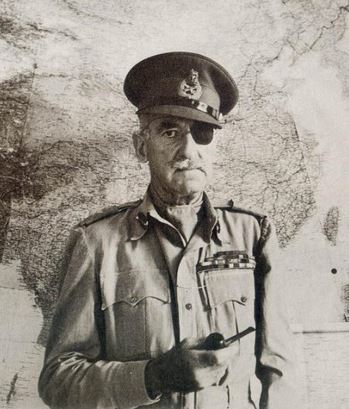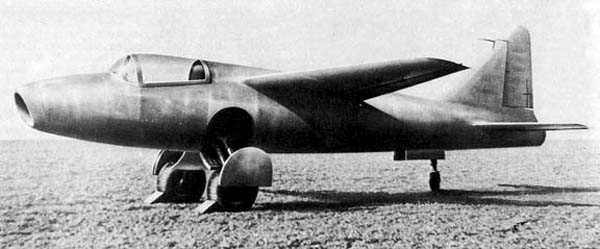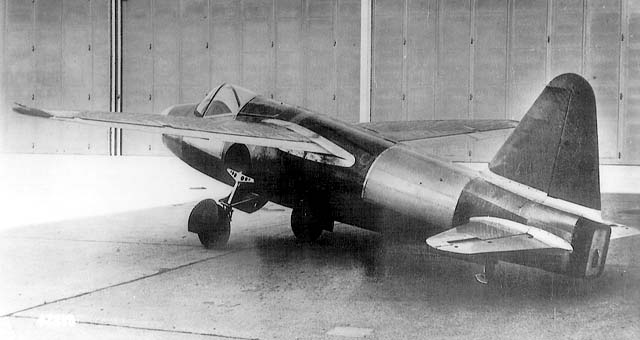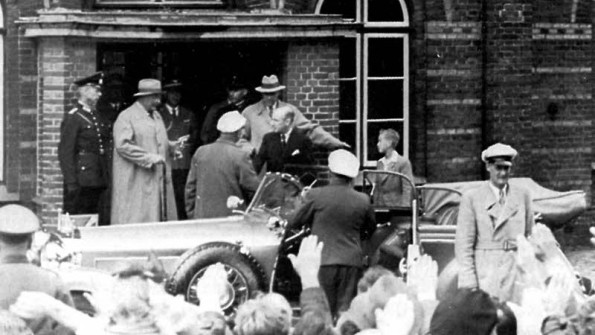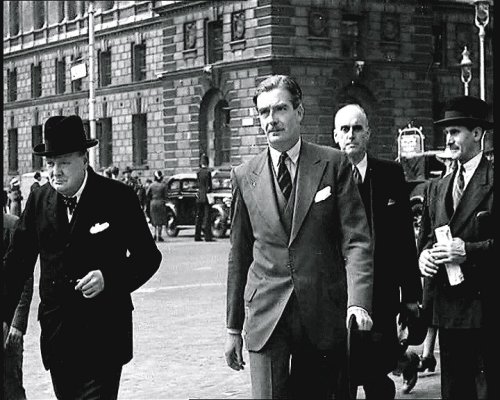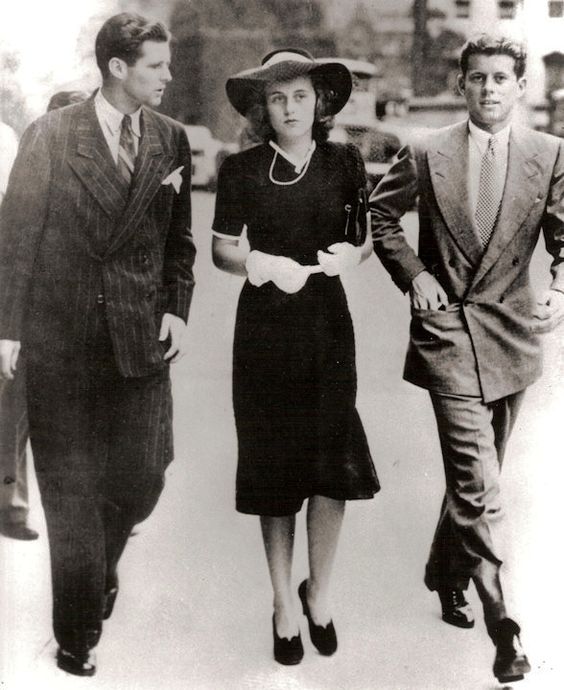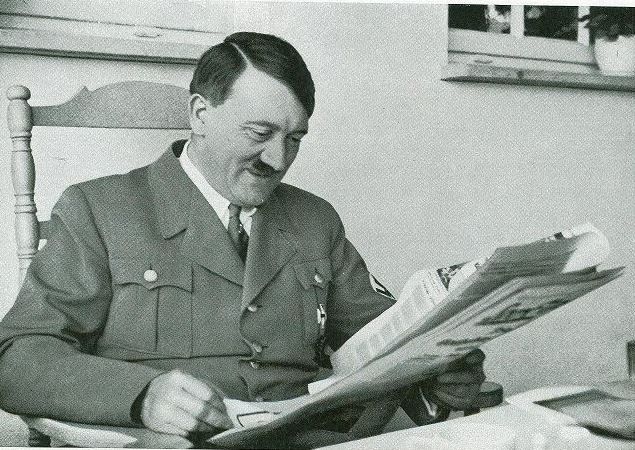Norway: The Vidkun Quisling puppet government, which nobody recognizes and which is completely ineffective, "resigns" (it was never officially installed) on 15 April 1940 under German pressure. The Germans are not interested in fulfilling Quisling's fantasies of being a sort of Viceroy, but rather in crafting a government that can actually accomplish something. The Quisling government is replaced by an Administrative Council composed of Norwegian lawyers and bureaucrats, and its leader is Ingolf Christensen. Quisling is gone but definitely not forgotten, and he remains lurking in the shadows.
King Haakon broadcasts an appeal to the people of Norway asking for their continued support. He intends to leave the country because his presence is causing casualties among the people defending him.
Norway Army Operations: The Norwegian 3rd Infantry Division, 2100 troops, surrenders north of Kristiansand. Units of the German 138th Mountain Regiment advance via a fortified train east from Trondheim toward Sweden, the objective being to secure the "waist" of the country.
At the Battle of Dombås, Oblt. Schmidt and his men begin the day at Hågåvollen, a farm on the highway five kilometers south of Dombås. They are blocking the main road through the region. The men left behind on the road catch up, so Schmidt has about 60 men with him. The Fallschirmjäger blow up the railway line nearby in three places, which closed the line for 24 hours.
The Norwegians know there is a German force in the area, but know little else. Kaptein Eiliv Austlid of the Norwegian army is tasked with clearing the road, which King Haakon and the rest of the government would use as an escape route. He brings two heavy machine gun platoons with 41 men. The Norwegian counterattack fails in deep snow. Austlid is killed while storming the dug-in Germans, who are elite soldiers, and 28 of the Norwegians are captured. At the end of the day, the German Fallschirmjäger remain in control of the road. Their true objective, the Dombås rail station, appears out of reach, but the German troops are disrupting Norwegian plans by their mere presence.
Hegra Fortress has been reactivated by a scratch Norwegian force largely composed of locals. The mothballed fort may be old, but has huge cannon and plenty of ammunition. Some 250 Norwegian volunteers from local gun clubs man the ramparts. The commanding officer, Norwegian artillery major Hans Reidar Holtermann, already has rejected demands from the Germans that he surrender.
At 05:30, the Germans attack. Advance Norwegian units at the Hegra road bridge and railway station retreat to the fortress, destroying the bridge before they leave. The German troops, clad in dark uniforms, then have to run across the frozen Stjørdal River under the fortress' guns. The Norwegians lose five men killed and 8 taken prisoner.
With the Germans advancing, the guns of the fortress open up. Everyone is helping, including the local telephone operator who serves as a spotter. The fortress guns knock out three German artillery pieces.
The Germans pursue the Norwegians down the road to the fortress. At one point, they stop at some field fortifications and make a temporary stand. They inflict casualties, including the German platoon leader Oberleutnant Hans-Joachim Herrmann. The Germans retreat, and the Norwegians capture arms, ammunition and equipment. By day's end, though, the Germans have occupied most of the surrounding area and the Luftwaffe is flying reconnaissance over the fortress (one aircraft crash-landing).
At Narvik, British Major-General Joseph Mackesy is being encouraged by Vice-Admiral Whitworth in HMS Warspite, Admiral of the Fleet Dudley, and others to land his troops in the port itself after a naval bombardment. However, he has no idea how many German troops are defending the port, and sees little value in a preparatory naval bombardment that will wreck whatever value the port has. In addition, half of his troops have been diverted south to Namsos, and his 24th Brigade is not equipped for an opposed landing by determined German troops. Accordingly, Mackesy decides to disembark his men slightly north of Narvik and wait for better weather conditions to march over and take the town.
The Germans in Narvik are confident. Theodor Broch, Mayor of Narvik, states: "Gazing across the shell-torn port, a German officer said to me: 'Your friends the British will never come."
Norway Naval Operations: With the preliminary force having arrived on 14 April, the main body of the 24th British Guards Brigade arrives at Harstad.
In addition, the British 146th Territorial Brigade (a reserve formation) continues arriving at Namsos, north of Trondheim. Legendary General Carton de Wiart (VC, DSO) arrives to command. His Short Sunderland flying boat is attacked by a German fighter along the way and his aide is wounded, but de Wiart gets through as usual. Once on the ground, de Wiart orders immediate advance south toward Trondheim.
Norway Air Operations: The RAF raids Stavanger-Sola airfield again, this time with 11-15 bombers (sources vary), then another dozen during the night. More damage is done to the hangars, and some seaplanes are destroyed.
In addition, Fleet Air Arm aircraft raid shipping at Bergen, setting afire one transport, a small store ship, and a large flying boat. One of the attacking planes is lost.
The Luftwaffe continues sending Ju 52 transport planes to supply the isolated German garrison at Narvik. They land on frozen Lake Hartvigvann. HMS Furious sends airstrikes against them.
Battle of the Atlantic: U-49 (Kapitänleutnant Kurt von Gossler) is sunk near Narvik by British destroyers HMS Fearless and HMS Brazen. There is one fatality, 41 survive and are taken as prisoners.
Royal Navy submarine HMS Snapper sinks two Kriegsmarine minesweepers, M-1701, and M-1702.
Destroyer USS Wainwright (Lt. Commander Thomas L. Lewis) is commissioned.
Convoy US 3 departs from Victoria, Australia for Egypt. It carries the Australian 18th Infantry Brigade.
Western Front: The main plan for the defense against the Germans, Anglo-French Plan D, changes slightly. Now, the French 7th Army, which is mechanized and under the command of General Henri Giraud, will move into southern Holland upon a Wehrmacht attack.
German/Swedish Relations: Birger Dahlerus brings with him to Berlin the commander of the Swedish Navy, Vice-Admiral Fabian Tamm. They meet Hermann Goering at the Air Ministry. Tamm warns that Sweden would defend its borders "Against everybody who tries to force their way across Sweden's frontiers."
US/Japanese Relations: Japanese Foreign Minister Arita Hachiro announces at a press conference that Southeast Asia comes under Japanese dominion because it is "economically bound [to Japan] by an intimate relationship of mutuality in ministering to one another's needs." He apparently refers to potential German conquests in Europe when he affirms that Japan takes this responsibility seriously:
French Navy: The government presses forward with an ambitious naval construction project that will include 2 new battleships and three heavy cruisers.
Denmark: With the German occupation a fait accompli, the Danism military de-mobilizes its troops.
Bolivia: General Enrique Penaranda inaugurated as president.
Holocaust: In occupied Poland, Gauleiter Hans Frank announces his plan to make Krakow "Jew-free" by deporting any Jews left there to labor camps.
British Homefront: The government reports that there are only 972,695 people unemployed. This is 148,518 less than in March 1940 and the lowest monthly total since 1920. Hitler has lowered unemployment in both Germany and in Great Britain.
Future History: Events of World War II remain vividly alive in the memory of the Norwegian people. In 2009, Captain Eiliv Austlid, who led the brave charge up a hill toward the German line at Dombås and fell with a bullet through the chest, was awarded the War Cross with Sword, Norway's highest military decoration.
April 2, 1940: British Subs On Alert
April 3, 1940: Churchill Consolidates Power
April 4, 1940: Missed the Bus
April 5, 1940: Mig-1 First Flight
April 6, 1940: Troops Sailing to Norway
April 7, 1940: Fleets At Sea
April 8, 1940: HMS Glowworm and Admiral Hipper
April 9, 1940: Invasion of Norway
April 10, 1940: First Battle of Narvik
April 11, 1940: Britain Takes the Faroes
April 12, 1940: Germans Consolidate in Norway
April 13, 1940: 2d Battle of Narvik
April 14, 1940: Battle of Dombås
April 15, 1940: British in Norway
April 16, 1940: Germans Cut Norway in Half
April 17, 1940: Trondheim the Target
April 18, 1940: Norway Declares War
April 19, 1940: Dombås Battle Ends
April 20, 1940: Germans Advancing in Norway
April 21, 1940: First US Military Casualty
April 22, 1940: First British Military Contact with Germans
April 23, 1940: British Retreating in Norway
April 24, 1940: British Bombard Narvik
April 25, 1940: Norwegian Air Battles
April 26, 1940: Norwegian Gold
April 27, 1940: Allies to Evacuate Norway
April 28, 1940: Prepared Piano
April 29, 1940: British at Bodo
April 30, 1940: Clacton-on-Sea Heinkel
2019
King Haakon broadcasts an appeal to the people of Norway asking for their continued support. He intends to leave the country because his presence is causing casualties among the people defending him.
Norway Army Operations: The Norwegian 3rd Infantry Division, 2100 troops, surrenders north of Kristiansand. Units of the German 138th Mountain Regiment advance via a fortified train east from Trondheim toward Sweden, the objective being to secure the "waist" of the country.
At the Battle of Dombås, Oblt. Schmidt and his men begin the day at Hågåvollen, a farm on the highway five kilometers south of Dombås. They are blocking the main road through the region. The men left behind on the road catch up, so Schmidt has about 60 men with him. The Fallschirmjäger blow up the railway line nearby in three places, which closed the line for 24 hours.
The Norwegians know there is a German force in the area, but know little else. Kaptein Eiliv Austlid of the Norwegian army is tasked with clearing the road, which King Haakon and the rest of the government would use as an escape route. He brings two heavy machine gun platoons with 41 men. The Norwegian counterattack fails in deep snow. Austlid is killed while storming the dug-in Germans, who are elite soldiers, and 28 of the Norwegians are captured. At the end of the day, the German Fallschirmjäger remain in control of the road. Their true objective, the Dombås rail station, appears out of reach, but the German troops are disrupting Norwegian plans by their mere presence.
Hegra Fortress has been reactivated by a scratch Norwegian force largely composed of locals. The mothballed fort may be old, but has huge cannon and plenty of ammunition. Some 250 Norwegian volunteers from local gun clubs man the ramparts. The commanding officer, Norwegian artillery major Hans Reidar Holtermann, already has rejected demands from the Germans that he surrender.
At 05:30, the Germans attack. Advance Norwegian units at the Hegra road bridge and railway station retreat to the fortress, destroying the bridge before they leave. The German troops, clad in dark uniforms, then have to run across the frozen Stjørdal River under the fortress' guns. The Norwegians lose five men killed and 8 taken prisoner.
With the Germans advancing, the guns of the fortress open up. Everyone is helping, including the local telephone operator who serves as a spotter. The fortress guns knock out three German artillery pieces.
The Germans pursue the Norwegians down the road to the fortress. At one point, they stop at some field fortifications and make a temporary stand. They inflict casualties, including the German platoon leader Oberleutnant Hans-Joachim Herrmann. The Germans retreat, and the Norwegians capture arms, ammunition and equipment. By day's end, though, the Germans have occupied most of the surrounding area and the Luftwaffe is flying reconnaissance over the fortress (one aircraft crash-landing).
At Narvik, British Major-General Joseph Mackesy is being encouraged by Vice-Admiral Whitworth in HMS Warspite, Admiral of the Fleet Dudley, and others to land his troops in the port itself after a naval bombardment. However, he has no idea how many German troops are defending the port, and sees little value in a preparatory naval bombardment that will wreck whatever value the port has. In addition, half of his troops have been diverted south to Namsos, and his 24th Brigade is not equipped for an opposed landing by determined German troops. Accordingly, Mackesy decides to disembark his men slightly north of Narvik and wait for better weather conditions to march over and take the town.
The Germans in Narvik are confident. Theodor Broch, Mayor of Narvik, states: "Gazing across the shell-torn port, a German officer said to me: 'Your friends the British will never come."
 |
| Dombås Station, the objective of the battle nearby. |
In addition, the British 146th Territorial Brigade (a reserve formation) continues arriving at Namsos, north of Trondheim. Legendary General Carton de Wiart (VC, DSO) arrives to command. His Short Sunderland flying boat is attacked by a German fighter along the way and his aide is wounded, but de Wiart gets through as usual. Once on the ground, de Wiart orders immediate advance south toward Trondheim.
Norway Air Operations: The RAF raids Stavanger-Sola airfield again, this time with 11-15 bombers (sources vary), then another dozen during the night. More damage is done to the hangars, and some seaplanes are destroyed.
In addition, Fleet Air Arm aircraft raid shipping at Bergen, setting afire one transport, a small store ship, and a large flying boat. One of the attacking planes is lost.
The Luftwaffe continues sending Ju 52 transport planes to supply the isolated German garrison at Narvik. They land on frozen Lake Hartvigvann. HMS Furious sends airstrikes against them.
Battle of the Atlantic: U-49 (Kapitänleutnant Kurt von Gossler) is sunk near Narvik by British destroyers HMS Fearless and HMS Brazen. There is one fatality, 41 survive and are taken as prisoners.
Royal Navy submarine HMS Snapper sinks two Kriegsmarine minesweepers, M-1701, and M-1702.
Destroyer USS Wainwright (Lt. Commander Thomas L. Lewis) is commissioned.
Convoy US 3 departs from Victoria, Australia for Egypt. It carries the Australian 18th Infantry Brigade.
Western Front: The main plan for the defense against the Germans, Anglo-French Plan D, changes slightly. Now, the French 7th Army, which is mechanized and under the command of General Henri Giraud, will move into southern Holland upon a Wehrmacht attack.
German/Swedish Relations: Birger Dahlerus brings with him to Berlin the commander of the Swedish Navy, Vice-Admiral Fabian Tamm. They meet Hermann Goering at the Air Ministry. Tamm warns that Sweden would defend its borders "Against everybody who tries to force their way across Sweden's frontiers."
US/Japanese Relations: Japanese Foreign Minister Arita Hachiro announces at a press conference that Southeast Asia comes under Japanese dominion because it is "economically bound [to Japan] by an intimate relationship of mutuality in ministering to one another's needs." He apparently refers to potential German conquests in Europe when he affirms that Japan takes this responsibility seriously:
"In view of these considerations, the Japanese Government cannot but be deeply concerned over any development accompanying an aggravation of the war in Europe that may affect the status quo of the Netherlands East Indies."US Navy: In an administrative shuffle, the Naval Reserve command responsibility for naval districts is changed. Responsibility for naval districts is transferred to the Naval Reserve Policy Division, Office of the Chief of Naval Operations. This is done because the importance of the districts is about to be upgraded.
French Navy: The government presses forward with an ambitious naval construction project that will include 2 new battleships and three heavy cruisers.
Denmark: With the German occupation a fait accompli, the Danism military de-mobilizes its troops.
Bolivia: General Enrique Penaranda inaugurated as president.
Holocaust: In occupied Poland, Gauleiter Hans Frank announces his plan to make Krakow "Jew-free" by deporting any Jews left there to labor camps.
British Homefront: The government reports that there are only 972,695 people unemployed. This is 148,518 less than in March 1940 and the lowest monthly total since 1920. Hitler has lowered unemployment in both Germany and in Great Britain.
Future History: Events of World War II remain vividly alive in the memory of the Norwegian people. In 2009, Captain Eiliv Austlid, who led the brave charge up a hill toward the German line at Dombås and fell with a bullet through the chest, was awarded the War Cross with Sword, Norway's highest military decoration.
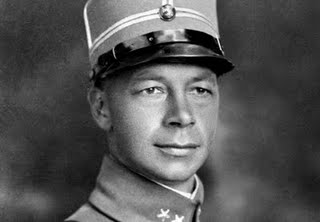 |
| Captain Eiliv Austlid posthumously received Norway's highest military decoration on October 2, 2009, for his actions on 15 April 1940. |
April 1940
April 1, 1940: Weserubung is a GoApril 2, 1940: British Subs On Alert
April 3, 1940: Churchill Consolidates Power
April 4, 1940: Missed the Bus
April 5, 1940: Mig-1 First Flight
April 6, 1940: Troops Sailing to Norway
April 7, 1940: Fleets At Sea
April 8, 1940: HMS Glowworm and Admiral Hipper
April 9, 1940: Invasion of Norway
April 10, 1940: First Battle of Narvik
April 11, 1940: Britain Takes the Faroes
April 12, 1940: Germans Consolidate in Norway
April 13, 1940: 2d Battle of Narvik
April 14, 1940: Battle of Dombås
April 15, 1940: British in Norway
April 16, 1940: Germans Cut Norway in Half
April 17, 1940: Trondheim the Target
April 18, 1940: Norway Declares War
April 19, 1940: Dombås Battle Ends
April 20, 1940: Germans Advancing in Norway
April 21, 1940: First US Military Casualty
April 22, 1940: First British Military Contact with Germans
April 23, 1940: British Retreating in Norway
April 24, 1940: British Bombard Narvik
April 25, 1940: Norwegian Air Battles
April 26, 1940: Norwegian Gold
April 27, 1940: Allies to Evacuate Norway
April 28, 1940: Prepared Piano
April 29, 1940: British at Bodo
April 30, 1940: Clacton-on-Sea Heinkel
2019
